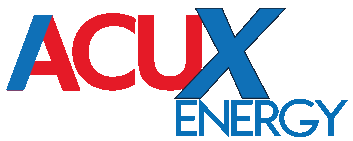Israel NP1 Conference

Lecture delivered by Alex Copson, managing director and co-founder of ACU Energy Intl, to NP1 – THE NUCLEAR POWER CONFERENCE ISRAEL on 10 November 2020.
Although ACU Energy International is a commercial entity, it is designed to bridge the gap between government policy and facts on the ground, while providing a lasting common denominator between governments in the region.
The most important value large-scale nuclear power can provide the wider Middle East is its ability to unite – economically and strategically – 2 or more superpowers and hold them together productively for more than 80 years to effect urgently-needed economic and security changes.
The game-changing capability and horsepower of a super consortium is obvious and rapidly beneficial on many levels to all in the region.
Nuclear power provides the sustainable bonding agent if done on a scale large enough to meet regional needs and with a built-in forward-looking capacity to fast-track reconstruction and managed defense from the Gulf to the Med.
As the US has no equivalent of either Rosatom or China General Nuclear, the first mission of the ACU construct is to correct this status with a private sector platform that ensures US non-proliferation standards are sustained and enforced by the supply/operational partnership.
The US Government does not have the capability, without an act of Congress, to create a state enterprise to replicate the abilities of the ACU construct. ACU is unique as the only US entity with the knowledge and expertise to put into operation a viable and functionally compatible US architecture.
Super consortium is structured to create a Middle East version of the Tennessee Valley Authority which will be funded by the Arab Gulf states. Super consortium will be the cornerstone of a necessary new oil production partnership between the consortium’s partners and the Arab Gulf states.
All 40 ACU reactors will be built, owned, operated, controlled and secured – including the fuel cycle – by super consortium over their operational lifetime.
Unlike other providers of nuclear power, ACU super consortium does not sell reactors or promote the sale of reactors or require, as others do, any softening of the US gold standard in 123 civil nuclear cooperation agreements.
The ACU construct’s very nature and architecture prevents at all times the transfer of any sensitive nuclear technologies or any access to fissile material to anyone in the region. It reinforces and gives teeth to US 123 nuclear cooperation agreements that can easily be disregarded if reactor ownership is granted to regional states.
The US-based super consortium – with an 80-year operating life – by design gives Israel an order of magnitude greater capability to defend itself and by extension protect more effectively the Arab Gulf States.
The project reinforces and supercharges Israeli and US Government efforts to normalize Israel’s relations with neighboring Arab countries, ensuring a lifespan of decades.
The consortium mitigates the potential long-term proliferation risk of independent non-super consortium reactors by securing them in the ACU fleet under its operational security umbrella.
Question from the audience: Why would the countries of the Middle East, which are not all in a good relationship with each other, go with the super consortium and why would they pay for it?
ACU’s product is super consortium, which is a nuclear-secured oil & gas deal. The important thing to understand here is that the Gulf States are going to face two issues.
One, the demand for reparation from the Iranians to the Biden administration – if it’s the case that a Biden administration is a reality in the next couple of weeks – and, of course, ACU and the super consortium is a lot cheaper than that.
But, more importantly, the ACU super consortium acts as the cornerstone for a new OPEC – a replacement for OPEC.
OPEC is a dated vehicle. Fifteen years ago, two major events happened. Russia became a major oil producer and exporter and of course the shale revolution in the United States.
OPEC preceded all that.
So, with 90% of the troubles in the Middle East, you find that all roads lead to the price of oil. The low oil price was absolutely the result of the Saudis crashing the price in reflection of the Obama nuclear agreement, and of course now they’ve painted themselves into a corner.
The only way out is for the 3/4 parties – the major producers – to simply come to a production arrangement and then to hold it. It’s no good having these talks where today we agree and tomorrow we disagree. You’ve got to have something permanent.
You can’t get there from here. You need to start something very strong that can defend itself, can be non-interrupted, and this is where nuclear power plays a great role. But it has to be done by two or more superpowers. You just can’t have small civilian nuclear projects, no matter where they come from.

